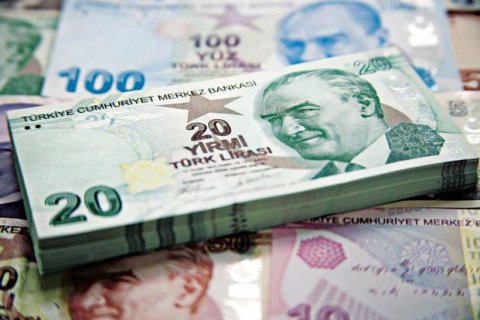For those looking to engage in trade, investment, or tourism, understanding the intricacies of currency considerations in Turkey is crucial.

As a bridge between Europe and Asia, Turkey has long been a captivating destination for travelers, investors, and businesses alike. With a rich history, diverse culture, and growing economy, the country offers a plethora of opportunities.This article delves into the key aspects of Turkey’s currency landscape, including its currency exchange rate regime, economic factors influencing the currency, and strategies to manage currency risk.
Currency Exchange Rate Regime in Turkey
Turkey’s currency, the Turkish lira (TRY), plays a pivotal role in the nation’s economic affairs. The country operates under a floating exchange rate regime, where the value of the lira is determined by the foreign exchange market’s supply and demand dynamics. This approach provides flexibility and allows the lira to adjust to economic changes, but it also exposes the currency to potential volatility.
Economic Factors Influencing the Currency in Turkey
Several economic factors influence the performance of the Turkish lira:
Turkey has faced a history of high inflation rates, which can erode the value of the lira over time. The government’s efforts to curb inflation and maintain price stability are closely watched by investors.
Central banks around the world use interest rates as a tool to control inflation and stimulate economic growth. Turkey’s central bank, the Central Bank of the Republic of Turkey (CBRT), plays a similar role, adjusting interest rates to influence borrowing costs, capital flows, and ultimately the value of the lira.
A nation’s trade balance, which measures the difference between its exports and imports, can impact its currency. Turkey’s trade balance affects the supply and demand for foreign currency, influencing the exchange rate.
Political stability is a vital factor for investor confidence. Uncertainties in Turkey’s political landscape can lead to fluctuations in the currency markets, as investors reassess their risk exposure.
External economic events and geopolitical tensions can impact currency markets globally. Turkey’s currency is not immune to these factors, and changes in the international economic environment can influence the lira’s value.
Managing Currency Risk
For individuals, businesses, and investors engaged with Turkey, managing currency risk is paramount. Here are some strategies to consider:
Currency Hedging: Currency hedging involves using financial instruments like forward contracts and options to lock in exchange rates for future transactions. This strategy helps protect against potential currency fluctuations and provides stability for cross-border transactions.
Diversification: Investors can diversify their portfolios by including assets denominated in different currencies. This approach reduces reliance on a single currency and helps mitigate the impact of adverse exchange rate movements.
Stay Informed: Keeping a pulse on economic indicators, political developments, and global market trends is essential. Being informed allows individuals and businesses to make informed decisions and anticipate potential currency fluctuations.
Consult Experts: Working with financial advisors, economists, and currency experts can provide valuable insights and guidance on managing currency risk. These professionals can help tailor strategies to individual circumstances and goals.
Long-Term Perspective: It’s important to approach currency considerations with a long-term perspective. Short-term fluctuations are a natural part of currency markets, but focusing on broader economic trends can provide a clearer understanding of where the currency might be headed.
Conclusion
Currency considerations in Turkey are multifaceted and hold significance for travelers, businesses, and investors seeking to engage with the country’s vibrant economy. As Turkey’s currency, the lira, navigates the ebbs and flows of economic conditions and global market influences, understanding the factors at play and adopting prudent strategies becomes paramount. By staying informed, diversifying portfolios, and employing currency risk management tools, individuals and businesses can navigate the ever-changing currency landscape and harness the potential that Turkey has to offer.








Comments are closed